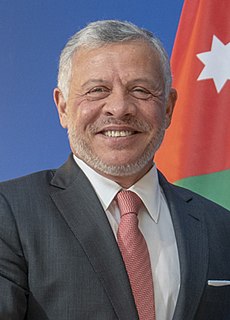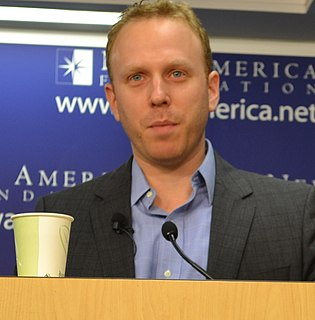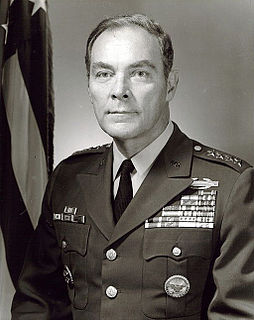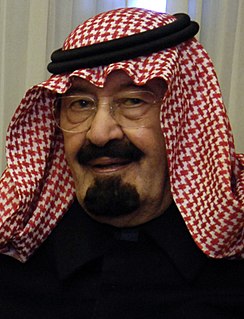A Quote by Abdullah II of Jordan
The Middle East has the highest unemployment percentage of any region in the world we have the largest youth cohort of history coming into the market place that frustration does translate into the political sphere when people are hungry and without jobs.
Related Quotes
What we learn from the past is that you cannot make peace against people by interfering and - and just launching a war and trying to change a regime without any political solution. So my role is first to avoid any war and try to - to frame the discussion in order to create peace and have a comprehensive peace process and preserve unintelligible and especially in this Middle East region. That's what I tried to do in Lebanon, for instance, by negotiating both with M.B.S., with the Lebanese government.
So much of what we see and hear about the Middle East focuses on what we call politics, which is essentially ideology. But when it comes to the Middle East, and especially the Arab world, simply depicting people as human beings is the most political thing you can do. And that's why I chose to write about food: food is inherently political, but it's also an essential part of people's real lives. It's where the public and private spheres connect.
What does it mean then to live with one another? It can be unhappy, it can be wretched, it can be ambivalent, it can even be full of antagonism, but all of that can play out in the political sphere without recourse to expulsion or genocide. And that is our obligation, to stay in the sphere with whatever murderous rage we have, without acting on it.
Without a deal [with Iran], the international sanctions regime will unravel with little ability to reimpose them. With this deal, we have the possibility of peacefully resolving a major threat to regional and international security. Without a deal, we risk even more war in the Middle East and other countries in the region would feel compelled to pursue their own nuclear programs, threatening a nuclear arms race in the most volatile region in the world.
I believe that the Iraqis have an opportunity now, without Saddam Hussein there, to build the first multiconfessional Arab democracy in the Middle East. And that will make for a different kind of Middle East. And these things take time. History has a long arc, not a short one. And there are going to be ups and downs, and it is going to take patience by the United States and by Iraq's neighbors to help the Iraqis to do that. But if they succeed, it'll transform the Middle East, and that's worth doing.








































